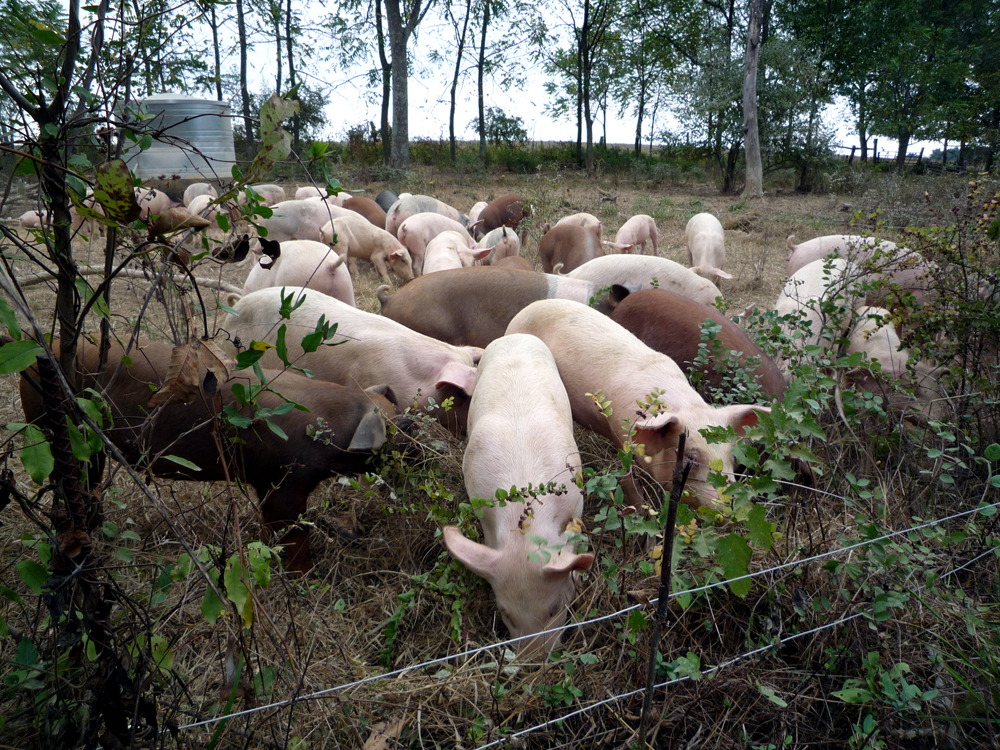
Rulemaking Could Institutionalize Conventional Livestock on Organic Farms
CORNUCOPIA, WIS — Advocates for organic food and farming are encouraging industry stakeholders to send comments to the USDA, by July 27, rejecting a proposal that would facilitate conventional dairy cows, pigs, and other stock being brought onto farms after the dairies or other livestock facilities initially gained certified organic status. The department’s National Organic Program has been accused of facilitating the expansion of “factory farms” producing organic milk, meat and eggs through the agency’s lax enforcement of existing regulations, and experts say the new rules could continue that trend.
July 24, 2015 | Source: The Prarie Star | by
CORNUCOPIA, WIS — Advocates for organic food and farming are encouraging industry stakeholders to send comments to the USDA, by July 27, rejecting a proposal that would facilitate conventional dairy cows, pigs, and other stock being brought onto farms after the dairies or other livestock facilities initially gained certified organic status. The department’s National Organic Program has been accused of facilitating the expansion of “factory farms” producing organic milk, meat and eggs through the agency’s lax enforcement of existing regulations, and experts say the new rules could continue that trend.
The proposed draft rule is intended to discontinue a practice that many in the organic dairy industry have long claimed is illegal. Giant factory farms, many milking thousands of cows each, have been buying one-year-old replacement animals and “converting” them to organic on an ongoing basis.
“This routine makes a mockery of the holistic approach to organic livestock agriculture that the law is designed to promote,” said Mark A. Kastel, Senior Farm Policy Analyst for the Wisconsin-based Cornucopia Institute.
Some large industrial-scale dairy operators sell all their baby calves at birth and replace them with conventional animals that have been raised on conventional/GMO feed, antibiotics and other drugs banned in organic production.
Other industrial dairies that may or may not sell their calves push the cows for such high production that the animals typically “burn out” at a young age, necessitating the purchase of replacement heifers.
Cornucopia’s Kastel said, “These practices place ethical family-scale organic dairy producers at a competitive disadvantage and betray the confidence consumers have in the organic label. Real organic farmers don’t buy replacement heifers — they sell replacement heifers.” Organic family-scale farms typically have animals that live healthier and longer lives resulting in a surplus of the animals born on the farm.
The USDA’s draft proposal would limit organic dairy farmers to purchasing transitioned replacement animals from other certified organic dairies. Historically, organic dairies could take advantage of a one-time exemption transitioning their entire farm, and animals, to organic production. [Cornucopia does want to encourage farmers to continue going through the rigorous three-year transition for their farmland and/or one-year transition for their animals.] The duplicity in the new rule, The Cornucopia Institute alleges, is the draft definition of a farm: to be considered a “dairy farm” requires that an operation milk just one (1) dairy cow.
“The proposed USDA regulations , allowing conventional herds to transition to organic production in one year, need to be prescriptive to avoid abuse that will directly affect the pay price and family income of dairy producers,” said respected organic dairy industry expert Ed Maltby, executive director of the Northeast Organic Dairy Producers Alliance.
